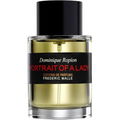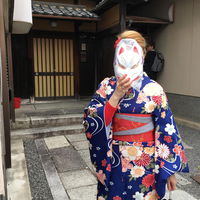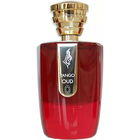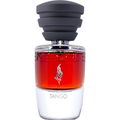I really like 'Love Kills'. It is a subtly physical rose-patchouli scent with a strong resemblance to Malle's 'Portrait of a Lady'. A bit slimmer and more contemporary than the Parisian Rose, which always seems slightly old-fashioned to me. The Milanese beauty notably omits incense and the often very classic clove, and despite also having enormous longevity, it is more restrained. However, not quiet.
Scent Development:
It opens with a fruity-sour rose, medium-dark, full-bodied, and slightly sweet. Lightened by a citrus note that gives the fragrance a delicate freshness until the end. It is underscored by a gentle, soft animalic note, which I would best describe as a "skin in the evening." A restrained, warm physicality that makes the rose so interesting and attractive to me. Probably caused by a combination of animalic musk in a creamy texture, slightly coarse-powdery ambrette seed, and the subtly synthetic, velvety-corporeal amber note. A carefully measured patchouli contributes a spicy-earthy tone (not musty-cellar), enhances the aroma, and adds verticality. Deep in the drydown, the protagonist develops a beautiful soap-like texture, which I have rarely smelled better in its almost silky nature - combined with the soft-spicy physicality. This creates the aura of an aromatic, elegant rose. Well-groomed and slightly suggestive at the same time.
All of this feels somewhat lighter and less serious compared to the Malle scent. Also opulently designed, but more composed. Approachable. Warmer. Moreover, excellently balanced. Pleasing without sacrificing a distinctive character.
Longevity and Sillage:
Just as the scent character is somewhat less expansive than in the Malle scent, the projection and sillage are also reduced. You are perceived subtly, and a light hint of the fragrance remains in the room. I can easily perceive it all day long without having to make an effort.
Conclusion:
In my opinion, 'Love Kills' is a successful, more everyday-friendly, and slightly modern version of the very similar 'Portrait of a Lady'.
Note on Ingredients:
Amber note is a fully synthetic aroma compound that was developed in 1926 by the French company Synarome as a replacement for ambergris. Its scent profile is described as “warm and enveloping ambery note with smoky nuances {and an} intense leathery and animalic heart {with} salty and mineral notes.” However, I do not perceive smoky, leathery, salty, and mineral facets in this fragrance. You can sense its potentially scent-defining power, which is restrained here through careful use.
Classification of the Name:
III - III Love Kills is part of Masque Milano's Opera line. The Roman numerals before the actual name indicate the respective acts and scenes of the in-house, four-act fragrance opera, which mixes themes of life (experiences, places, moods, feelings, reflections, relationships, dreams). In this act, love - symbolized by the rose - plays the main role. It depicts the blooming and dying of this primal force in a tragic love story. Inspired by Shakespeare's "Romeo and Juliet."
As with many brands, this is a nice addition and possibly necessary to differentiate from competitors and appeal to a certain clientele, but for me, it is rather uninteresting. At least I do not like it more or less because of this thematic embedding and do not recognize the connection (for me, it is, for example - if one engages with this interpretation - a solid, mature love in the drydown and not one that ends with death, as the brand narrative would like it to be understood).
Further Information:
In 2020, 'Love Kills' was nominated for an Art & Olfaction Award in the 'Independent' category.








 Turkish rose
Turkish rose Ambrarome
Ambrarome Ambrette seed absolute
Ambrette seed absolute Animalic musk
Animalic musk Egyptian geranium
Egyptian geranium Rose oxide
Rose oxide Turkish rose absolute
Turkish rose absolute Cedar
Cedar Indonesian patchouli
Indonesian patchouli











 Erswan
Erswan NicheOnly
NicheOnly Samasamaa
Samasamaa Eggi37
Eggi37 NikEy
NikEy Violett
Violett MlleJeanne
MlleJeanne Rajudaph
Rajudaph Rieke2021
Rieke2021 CharlAmbre
CharlAmbre


























